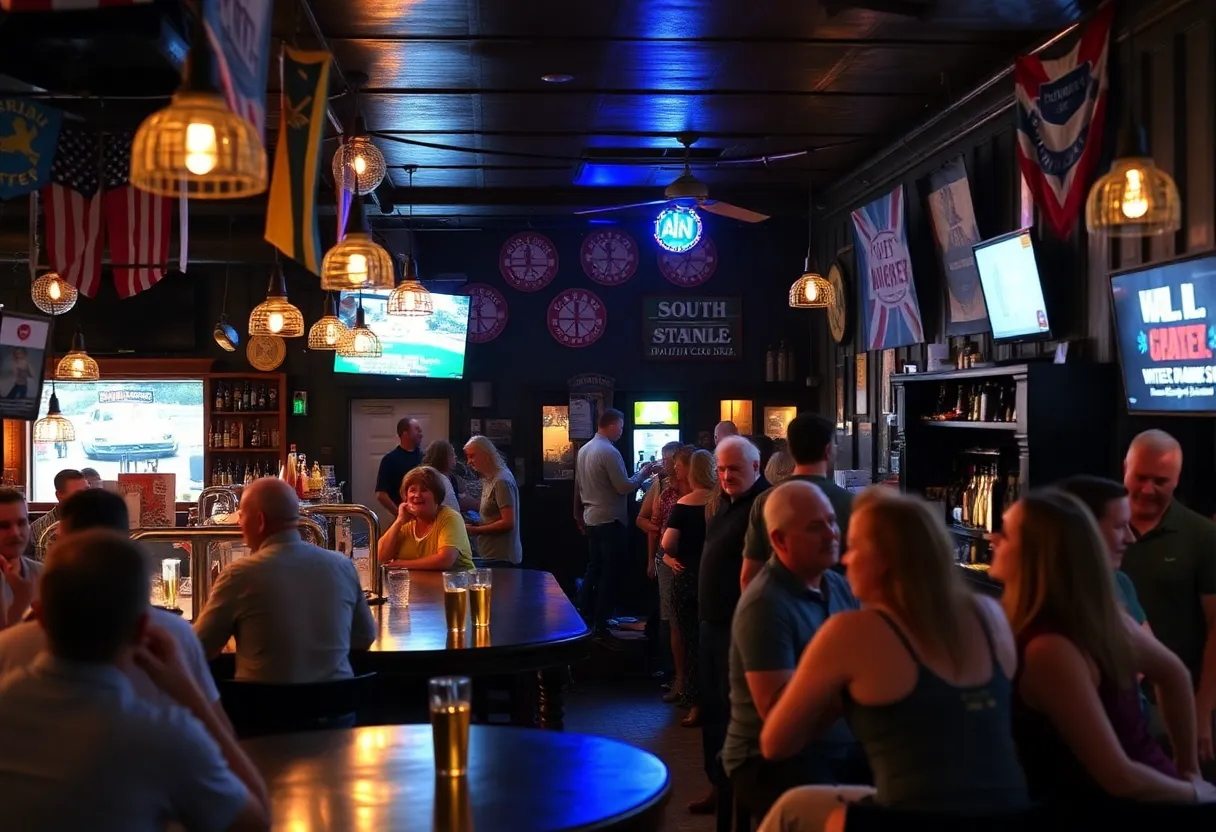News Summary
South Carolina lawmakers are seeking to amend liquor liability laws amid soaring insurance costs harming local bars and restaurants. Newly elected Senator Ed Sutton advocates changes to the existing law that imposes hefty insurance requirements on small businesses, threatening their survival. As the hospitality sector faces challenges from rising premiums, proposed reforms aim to balance accountability for alcohol-related incidents with the need for affordable insurance. Yet, some fear that easing liability could compromise victims’ rights, sparking a critical debate as bipartisan efforts progress.
South Carolina lawmakers are taking steps to amend liquor liability laws in response to escalating insurance costs that have been detrimental to local bars and restaurants. As many businesses struggle under premium increases of up to 100% for 2024, some have already closed their doors, bringing attention to the urgent need for reform in this area.
Newly elected State Senator Ed Sutton is at the forefront of advocating for changes to the current liquor liability laws, which he argues unfairly burden small business owners. The existing law, enacted in 2017, mandates that establishments serving alcohol past 5 p.m. must hold a minimum insurance policy of $1 million. This requirement has led to significant consequences, including insurance companies exiting the market and others raising their rates, compelling many small businesses to choose between paying inflated premiums and shutting down their operations.
Local business owners are voicing their concern over the impact these insurance costs have on their livelihoods. Business owner Zach Dennis exemplifies this predicable pattern, stating that the choice between maintaining insurance or ceasing operations is becoming increasingly challenging. Others, like owner Hendrick, highlight that without legislative changes to the liability laws, the survival of small businesses is at stake, as they may struggle to compete with larger chains that can withstand these rising expenses. This has led to fears that the hospitality sector could see a collapse in smaller establishments, favoring larger chains such as Applebee’s.
Senator Sutton’s proposed bill aims to alleviate some of these pressures by reducing the minimum insurance policy requirements while still ensuring that victims of alcohol-related incidents are adequately compensated. The goal is to strike a balance that allows businesses to operate sustainably while maintaining accountability among those who serve alcohol irresponsibly. However, this proposal has met with resistance. Advocates for victims argue that loosening liability laws could hinder the ability of individuals affected by alcohol-related incidents to seek justice.
One notable case is the Brew Cellar, which is set to close just two days after marking its 11th anniversary due to the financial strain imposed by liquor liability laws. The circumstances surrounding its closure epitomize the broader challenges faced by the hospitality industry in South Carolina. Charleston Mayor William Cogswell has stressed the significance of a vibrant culinary scene, warning of the economic risks if smaller establishments continue to close.
Lawmakers from both the South Carolina Senate and House have reached a bipartisan agreement to address these issues, promising a bill to the governor by May. However, given the current climate, there are concerns that many businesses may not survive this wait. The average increase in liquor liability premiums across the state has reached alarming levels, with reports documenting rises between 100% to over 1,000% in some instances.
The proposed changes also seek to redefine how liability is determined, preventing bars from bearing full responsibility in situations where they are only partially at fault for incidents. Proponents of the reform argue that if nothing is done, the hospitality industry, particularly in areas like Charleston, risks further degradation, affecting both local economies and the state’s tourism revenue, which is a vital aspect of its financial health.
Experts attribute the spiraling insurance costs to the lack of competition among providers in the market, which makes it difficult for local establishments to obtain affordable coverage. As discussions move forward, the focus remains on ensuring that these legislative changes protect both the interests of victims and the viability of South Carolina’s small businesses.
Deeper Dive: News & Info About This Topic
- Charleston Business: SC Liquor Liability Insurance Reform 2024
- ABC News 4: Business Forced to Close Due to SC Liquor Liability Law
- Post and Courier: Liquor Liability and South Carolina Restaurants
- Live 5 News: SC House Unanimously Passes Liquor Liability Reform
- Google Search: Liquor Liability Reform South Carolina

Author: STAFF HERE FLORENCE WRITER
The FLORENCE STAFF WRITER represents the experienced team at HEREFlorence.com, your go-to source for actionable local news and information in Florence, Florence County, and beyond. Specializing in "news you can use," we cover essential topics like product reviews for personal and business needs, local business directories, politics, real estate trends, neighborhood insights, and state news affecting the area—with deep expertise drawn from years of dedicated reporting and strong community input, including local press releases and business updates. We deliver top reporting on high-value events such as the Florence Festival of Lights, Pee Dee Pride, and agricultural expos at the Florence Center. Our coverage extends to key organizations like the Florence Regional Chamber of Commerce and the Pee Dee Area Council of Governments, plus leading businesses in healthcare and retail that power the local economy such as McLeod Health and Pee Dee Electric Cooperative. As part of the broader HERE network, including HERECharleston.com, HEREColumbia.com, HEREGreenville.com, and HEREHiltonHead.com, we provide comprehensive, credible insights into South Carolina's dynamic landscape.





